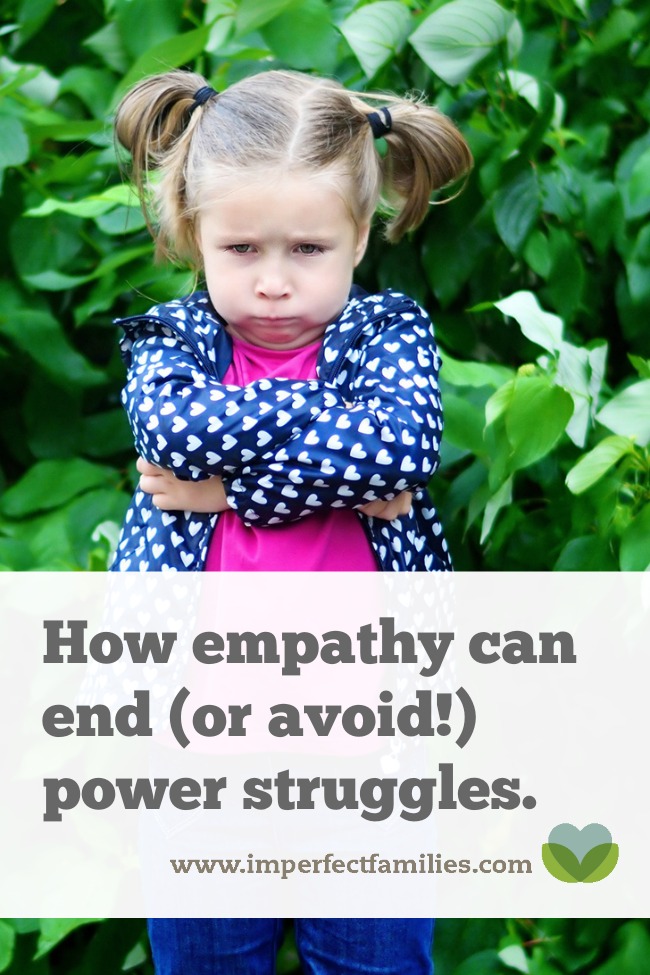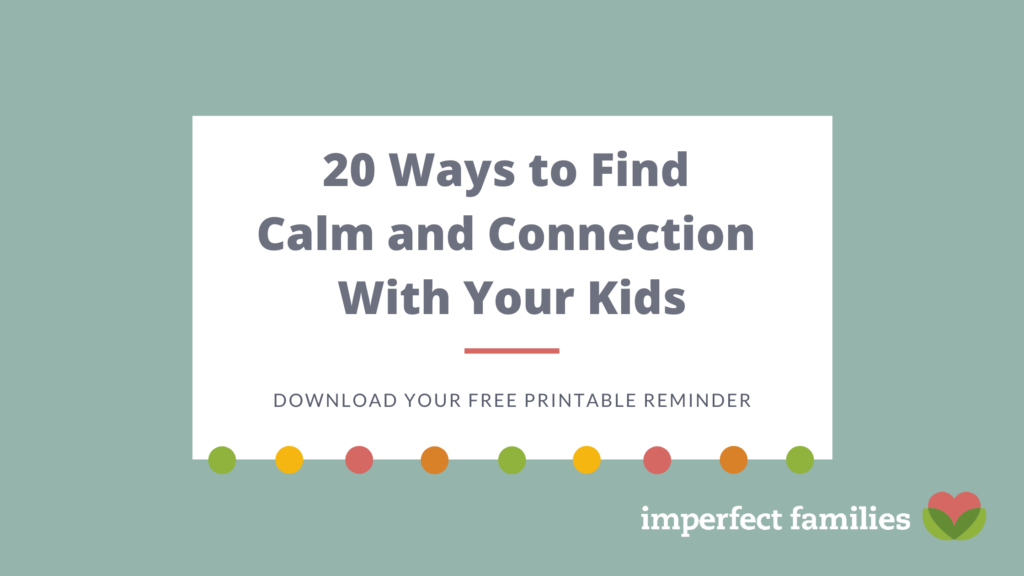
The bus drove away before we could get to the stop.
Sighing, I turn to my daughter, “I guess I’m driving you to school today.”
Panic filled her eyes. “No way. It’s embarrassing to be a car-rider.”
Confused, I brushed aside her remarks. “It’s not embarrassing. Come on, let’s go.”
“I’m not going to school today.”
“What?”
“I’m not going!” she screamed.
And just like that, a simple conversation turned into an all-out power struggle.
Where’s the Empathy?
Looking back, it’s easy to see where things went wrong.
Instead of entering into my daughter’s discomfort, I ignored it. Minimized it.
She was not feeling heard or understood.
Empathy can dramatically change a conversation, an interaction, and a relationship. We all want to be known. We want to know that what we’re feeling is normal and OK. We want to know that the people we love support us, even when we’re feeling big feelings.
When this need is satisfied, there’s less drive to resist. We can lean in, instead of push against each other.
It’s kind of magical.
If you’re stuck in a power struggle. Take a deep breath and go back to empathy.

3 Do’s of Empathy
- Put yourself in their shoes – even if you don’t agree. The situation may seem silly, insignificant, or minor to you, but to your child, it is of utmost importance. It’s not about you, it’s about seeing things from their perspective. Of course, you may not feel the same, but for now, your job is to understand why your child feels the way they do.
- Join with your child first, before asking them to be empathetic to others. Raising thoughtful, kind children is a great goal, but don’t let that overshadow the fact that your child has feelings of their own. Empathizing with their experience makes them feel understood, and opens the door to understanding and exploring how other people feel.
- Expect imperfection. Children are self-focused by nature, it’s not something that needs to be punished. Continue to talk about feelings, help them identify how they are feeling and how others may be feeling, and give them opportunities to practice. Empathy takes time to develop. Look for steps in the right direction, rather than expecting them to be empathetic 100% of the time.
3 Don’t’s of Empathy
- Don’t use empathy to stop a tantrum immediately. An empathetic response may not change anything about the situation. Your child may still feel mad or upset. The difference is, now they know you get it and you are going to help them navigate these big feelings. Some children switch from yelling to big tears and crying. Some, just need a little more time before they can move forward.
- Don’t use empathy to get what you want. Empathy is not a sneaky way to get your child to do things your way or to win a power struggle. It’s ok to set boundaries and limits with empathy, but make sure the empathy really addresses your child’s experience. Kids feel safe when their caregivers are able to lovingly support them through big feelings without an agenda.
- Don’t force it. It’s ok to feel unsure about how to respond to your child. You may feel overwhelmed with your own emotions, or you may have no idea what your child is experiencing. Instead of trying to find the perfect words, focus more on just “being” with your child. Sit quietly, open your arms, mirror their facial expressions, lean in to show interest, say, “tell me more about that…” or use simple “oh” or “mmhhh” to let them know you’re listening.
Doing empathy well.
Like anything in parenting, this is a skill. It will take time, practice and working on your own “stuff” before it becomes second nature. And even then, there may be times when you slip back into old patterns.
Be patient. Take a deep breath and start over.
Thankfully, this time I was able to pull myself together and disengage from the power struggle with my daughter by entering into her world.
“It’s embarrassing to be a car-rider.”
She nodded. Still fuming.
“What makes it embarrassing?”
I could tell from her face that she had no idea how to answer that question, so I offered a few thoughts. “Some people might laugh? Maybe they’ll be confused? Maybe they’ll ask you why you didn’t ride the bus?”
She nodded. The anger disappeared and turned to sadness.
Pulling her close, I continued, “OK, so we’re going to have to tackle something super-embarrassing this morning, huh?”
We talked it through and headed out the door.
She didn’t leap into the car with a cheerful smile, but she didn’t resist either.
Next time, I’ll start with empathy.
Empathy is key!
Download your FREE printable reminder to use empathy to disengage power struggles, plus you'll also receive weekly parenting tips sent to your inbox from Nicole Schwarz, LMFT & Parent Coach.
By signing up to receive this freebie, you agree to my Disclosure and Privacy Policy.



Comments have been turned off to retain the privacy of all families. If you have a question or comment on the topic, you're always welcome to contact me.